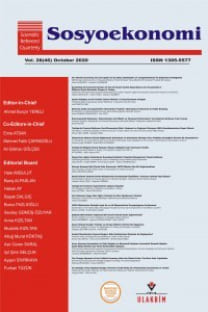Welfare Effects of Electricity Transit
The liberalization of the European electricity market facilitating the cross-border exchanges of electricity requires the establishment of a system for accessing the European grid. The starting point for the discussion of pricing the access to interconnected networks in this paper is the fact that electricity transit creates external effects to the involved countries which have to be internalized. Using a three countries model we analyze the welfare effects of different compensation scenarios for the electricity transfer between countries under individual and joint welfare maximization. The three countries have different roles: country 1 is an electricity exporting country, country 2 is importing electricity from country 1 and country 3 is the transit country. Individual and joint maximization deliver identical results if and only if export prices and transit charges are equal to marginal production and marginal transit costs. The joint optimum implies that the demand for imported electricity is determined by the sum of all relevant marginal costs: marginal production cost and marginal electricity loss in the export country, marginal transit costs and marginal electricity loss in the import country. The transit country has to be compensated for its electricity loss costs on the basis of marginal costs. Capital costs of transit capacity should only be compensated in the case of capacity shortage in the transit country.
Anahtar Kelimeler:
-
Welfare Effects of Electricity Transit
The liberalization of the European electricity market facilitating the cross-border exchanges of electricity requires the establishment of a system for accessing the European grid. The starting point for the discussion of pricing the access to interconnected networks in this paper is the fact that electricity transit creates external effects to the involved countries which have to be internalized. Using a three countries model we analyze the welfare effects of different compensation scenarios for the electricity transfer between countries under individual and joint welfare maximization. The three countries have different roles: country 1 is an electricity exporting country, country 2 is importing electricity from country 1 and country 3 is the transit country. Individual and joint maximization deliver identical results if and only if export prices and transit charges are equal to marginal production and marginal transit costs. The joint optimum implies that the demand for imported electricity is determined by the sum of all relevant marginal costs: marginal production cost and marginal electricity loss in the export country, marginal transit costs and marginal electricity loss in the import country. The transit country has to be compensated for its electricity loss costs on the basis of marginal costs. Capital costs of transit capacity should only be compensated in the case of capacity shortage in the transit country.
Keywords:
-,
___
- Christie, R.D. & Wollenberg, B.F. & Wangensteen, I. (2000), “Transmission Management in the Deregulated Environment”, Proceedings of the IEEE, Vol. 88, No. 2, February, pp. 170-195.
- Daxhelet, O. & Smeers, Y. (2003), “Cross-border trade: A two-stage equilibrium model of the Florence Regulatory Forum”, Proposals, Full Paper.
- Daxhelet, O. & Smeers, Y. (2007), “The EU regulation on cross-border trade of electricity: A two-stage equilibrium model”, European Journal of Operational Research, 181, pp. 1396-1412.
- European Commission, Legislation, Publications, Document and Reports on the internal Electricity Market, 1996-2003.
- ISSN: 1305-5577
- Yayın Aralığı: Yılda 4 Sayı
- Başlangıç: 2005
- Yayıncı: Sosyoekonomi Derneği
Sayıdaki Diğer Makaleler
Welfare Effects of Electricity Transit
Mikulas LUPTACIK, Heinrich OTRUBA
Türkiye Elektrik Sektöründe Reform Süreci, Regülâsyon ve Rekabet Politikası
Alparslan BAŞARAN, Necmiddin BAĞDADİOĞLU
Is There a Stochastic Trend in European Union Emission Trading Scheme Prices?
Quality of Supply and Efficiency: An Analysis of Portuguese Electricity Distribution Networks
Thomas WEYMAN-JONES, Júlia BOUCINHA, Catarina INÁCIO
Türkiye'de Elektrik Tüketimi ve Ekonomik Gelişmişlik Düzeyi İlişkisi: Yatay Kesit Analizi
